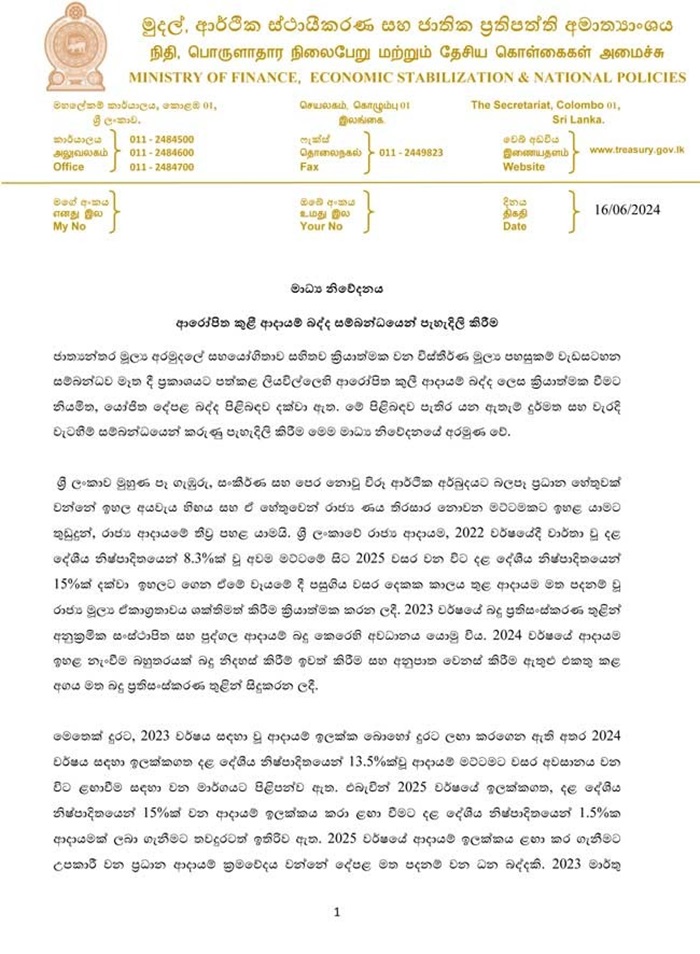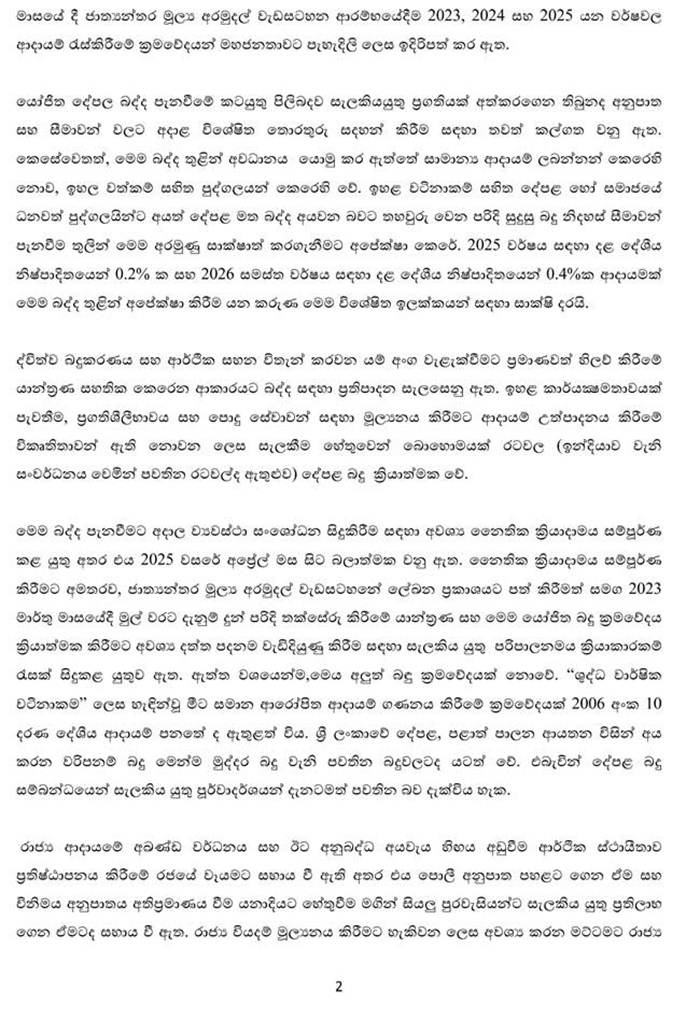
President Ranil Wickremesinghe says the proposed wealth tax has been redefined as the Imputed Rental Income tax to resolve Constitutional issues.
Providing a clarification in Parliament today, the President said the proposed Imputed Rental Income tax is a wealth tax with a very high threshold.
Stating that initially, the wealth tax was to be introduced based on the rating system, he said, however, the government had come across an issue as the rates were handled by Provincial Councils.
“As the government must receive the money, the government has introduced a new formula called the rental income. Under this, income tax belongs to the central government and not the Provincial Councils,” the President explained.
President Wickremesinghe further said that as it will have a high threshold, a vast majority of the country need not be worried about this tax.
The President emphasized that the Imputed Rental Income tax is intended to focus on high-net-worth individuals and not average-income earners.
Meanwhile, the Ministry of Finance also clarified that the proposed imputed rental income tax is the main revenue measure expected to help achieve Sri Lanka’s government revenue target in 2025.
Clarifying concerns over the said tax, the Finance Ministry issued a statement yesterday, explaining that the tax is part of the revenue measures expected in 2023, 2024, and 2025, which have been announced from the outset of the IMF programme approval in March 2023.
The proposed property tax has been referenced in the International Monetary Fund (IMF) supported Extended Fund Facility (EFF) programme-related documents released recently, it pointed out.
Explaining further, the Finance Ministry revealed that the said tax focuses on high-wealth individuals, and not on average-income earners, adding that a suitable tax-free threshold will be implemented to ensure that the tax is targeted on very high-value property or multiple properties that are owned by high-wealth individuals.
Stating that the tax is expected to yield 0.2% of GDP by 2025 and 0.4% of GDP in a full year in 2026, the ministry said the tax system will consist of mechanisms to avoid double taxation and any elements that distort economic incentives.
The Finance Ministry added that the proposed imputed rental income tax, which replaces the previously scheduled Property Tax for 2025, is expected to come into effect in April 2025.
An imputed rental income tax estimates the income a homeowner could earn if they rented out their property and taxes them on that potential income. This tax is based on the potential income from the property rather than its value.
The IMF has repeatedly stated that Sri Lanka should focus on establishing a data repository at the municipal level to implement this tax system. This repository should include updated estimates of properties owned by residents. (Newswire)



